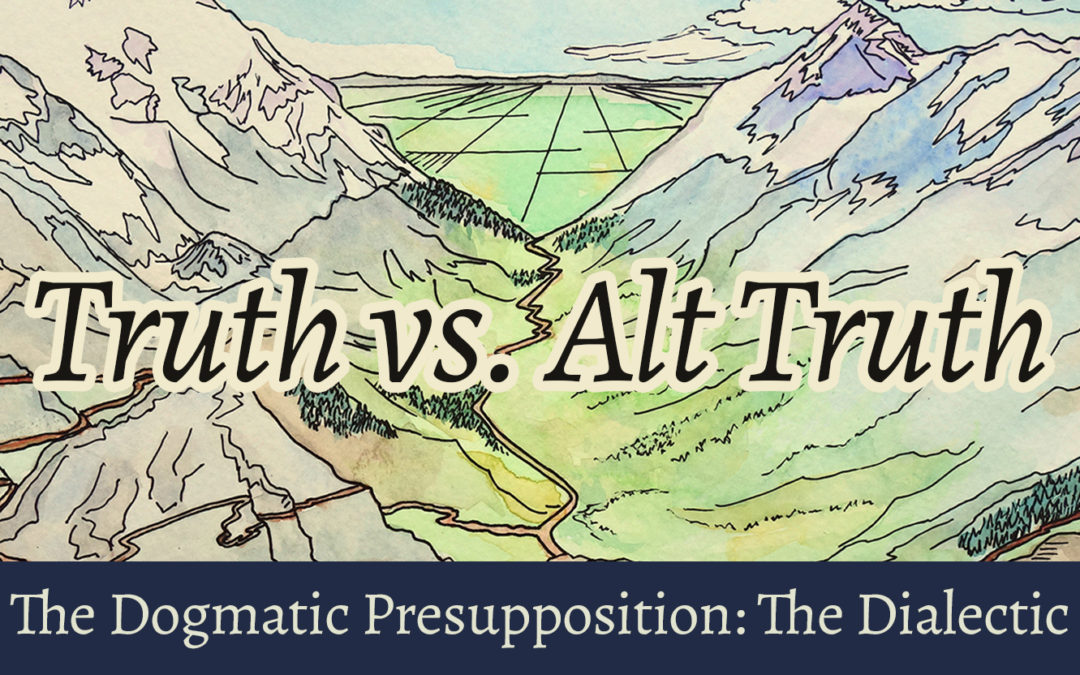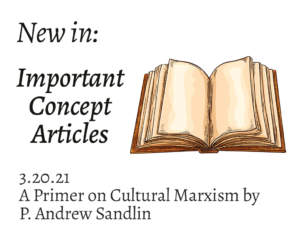A Clip from Post 5
Yes, the theory of knowledge belonging to the Postmodern Movement’s ideology is a Marxian derivative. (Here I am not referring to communism, a particular variant in Marxist thought.) Most people, even those who are strongly influenced by Postmodern Ideology, haven’t made the connection between their approach to knowledge and Marx and Engels. In my next post I will drill down to the presupposition of the dialectic and why knowing the connection to Marxism is important to us today. There is a sea change happening in the views of reality gaining dominance in the spirit of the age. We must press through to knowing truly, even if we know in part.
The Dogmatic Presupposition: The Dialectic
What is the presupposition of the Postmodern Movement’s ideology?
A Different Kind of Presupposition
As we move from the presuppositions of science and of Christianity to understanding the presupposition of the Postmodern Movement’s belief system, we will be considering a different kind of presupposition.
Science is concerned with knowledge of natural laws, specifically those of cause and effect. Christian theology is concerned with knowledge of God. Both of these understand knowledge as a prerequisite to action.
The ideology of the Postmodern Movement is concerned with the preferred values to be acted upon in order to accomplish the overall self-assigned mission of the ideology. Substantial knowledge is not a prerequisite for this action. On the contrary, decentering of substantial knowledge is desirable because the authority inherent in knowledge gets in the way of the mission and exerts critical evaluation when what is needed is values that lead to action.
In general, identification with a particular sense of justice is the prerequisite of action for the followers of this ideology. Identification with the oppressed, for example, calls for and requires commitment to seek justice now. This present-tense/immediate justice motivates decentering of critical knowledge. Research can wait. Planning and budgeting can wait. Specialized knowledge is required of those who direct the mission (an intellectual, elite group who are to be trusted with leadership), but their call to commitment from their followers does not usually assume action based on knowledge of reality.
This difference in kind of presupposition will produce conflict in a particular dialogue with those holding other knowledge systems. This will be very frustrating for the person thinking that she is in a discussion about different perspectives. In the case of those arguing the Postmodern Movement’s belief system, expectations that more knowledge more clearly understood will solve the problem will be shoved aside: substantial knowledge in advance of commitment is seen as a power move to avoid solving justice issue that are caused in part by oppressive elements of the present sociopolitical power (hegemony). This frustration of the person assuming the dialogue is about knowledge is to the advantage of the person using the dialectic as a method of social change, as will be explained below.
A Different Mode
Instead of being in a learning mode in which there are individuals engaged in the activity of reasoning from the known to the unknown, the mode of the Postmodern ideology is a sociopolitical process mode in which one is socialized into the values of the group. The knowledge gained in this process is the result of a dialectic process (thesis>opposed by<antithesis resulting in conflict leading to synthesis). Contradictions leading to polarization are seen as good; these contradictions give potential energy to change and destabilize the structures that must be brought down and rebuilt.
The Dogmatic Presupposition: The Marxist Dialectic Root
Thus, the dogmatic presupposition of the Postmodern Movement is rooted in the Marxist dialectic for which Marx is indebted to Hegel. Before I uncover that root, I need to continue to place the dogmatic dialectic of the Postmodern Movement in the context of this blog’s discussion.
I have been discussing three kinds of presuppositions of reasoned knowledge: 1. Absolute, 2: Relative, 3) Dogmatic.
I gave an example of two absolute presuppositions:
1. Science: “Every event has a cause” is the absolute presupposition of science.
2. Christianity: “God is” or “I AM” is the absolute presupposition of Christianity.
Again, absolute presuppositions just are: they cannot be proved nor should we attempt to prove them. We do not reason to them: we reason from them. For example, since every event has a cause, I can confidently search for the cause because even if I fail to find the cause, I know there is one.
Secondly, I discussed relative presuppositions of the everyday variety: the reasoning activity of first presupposing something and then proving it (or not), or first laying it down and then giving evidence to prove it. This discussion was to distinguish relative presuppositions from absolute presuppositions.
Recognizing the Dialectic Today
In Post 5 I began to discuss “the dialectical development of human knowledge, socially acquired in the course of practical activity.” This dialectic process (thesis/ antithesis becoming a synthesis) functions as a presupposition of the ideology. The process itself, not some assertion about reality, is treated as a given and is defended dogmatically by the ideology. For example, the Postmodern Movement believer could say, “Since the dialectic process produces human knowledge, we can reason from this presupposition (accept it as true) in order to develop an ideology based on the kind of knowledge the dialectic gives.”
This description was my attempt to introduce a presupposition that is asserted by an ideology, a belief system. The ideology is on a mission. The dialect is a method of developing knowledge and bringing social change. The dialectic as a dogmatic presupposition is laid down “as true” by the ideology in much the same way this dogmatic presupposition was laid down by Hegel, Marx, and Critical Theory.
Summary
Taking time now to notice and feel the weight of the differences of the dogmatic presupposition as distinct from absolute presuppositions of science and theistic religion will increase clarity later. So, I will state the differences in another way.
The presuppositions of science and Christianity are alike because they both are statements arising from critical descriptions of reality. In contrast, the dogmatic presupposition of the Postmodern Ideology (the dialectic itself) arises from the thinking processes of people who have drawn a conclusion that reality cannot be adequately known, but that the product of the dialectic, what I am calling alt-truth can be trusted as value-truth, even though it is acquired socially.
Several characteristics can be noted of how the ideology of the Postmodern Movement acts upon this presupposition of an alt-truth producing dialectical process: 1) Skepticism rules as to knowing reality; 2) knowledge comes into being as a result of an ongoing dialectical process (thesis, antithesis, synthesis) that is a social dialogue process. Moreover, it can be assumed that the process is positive: it is progressive toward a good end that is predetermined, a utopia. As to justifying actions to be true and right, authority shifts from presuppositions based on reality to presuppositions based on group consensus about group experience. When distinct groups are committed to conflicting goals, there is no recourse to a higher knowledge, only a tribal conflict where the winner takes all, plus the confidence that the outcomes will be positive because positive outcomes are dogmatically presupposed as the dialectic progressively flows on.
But there is another aspect to this movement that must not be forgotten. The ideology itself is on a mission. The system is seeking to take charge of “knowledge about everything.” So, the goal is to gain social power in order to impose its values. It is thus fair to say that the Postmodern Movement’s belief system is sociopolitical.
Next: A mini-case study plus historical examples to further clarify the dialectic.



0 Comments